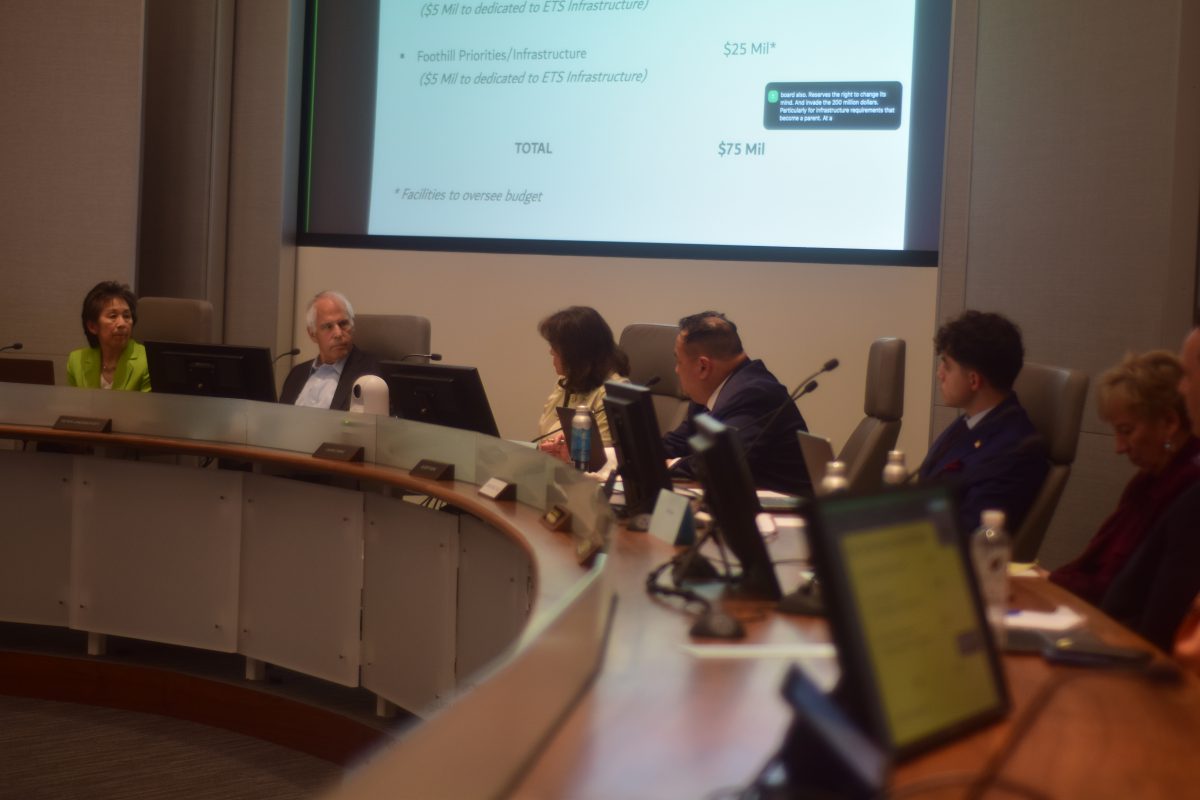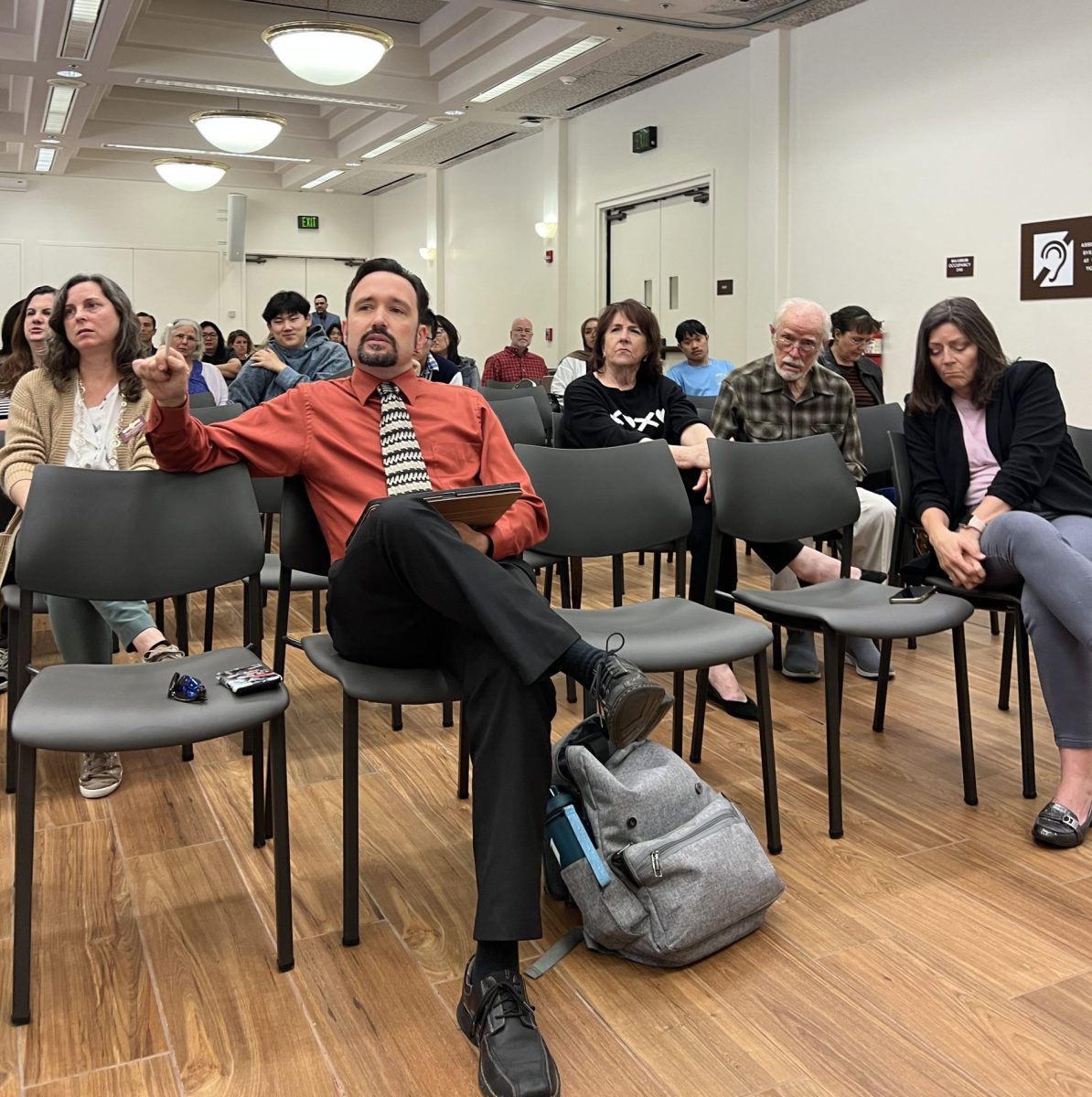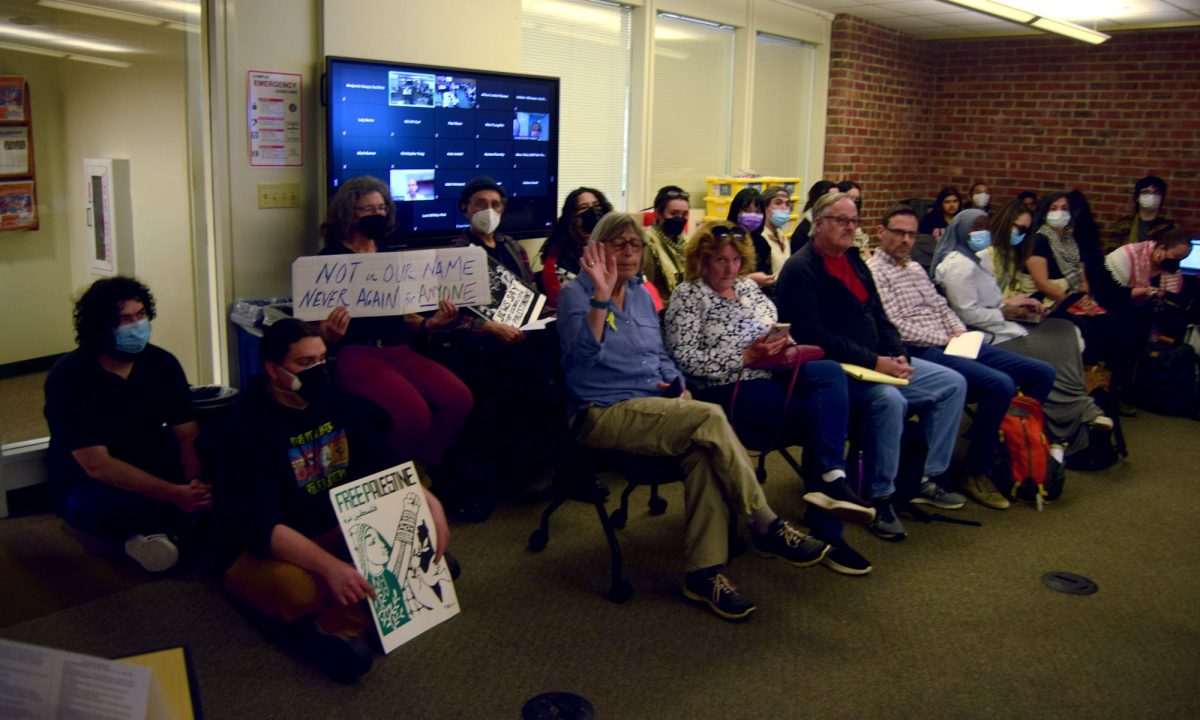Following City College of San Francisco’s Board of Trustees example, De Anza College’s faculty are moving to reject the Student Success Task Force’s draft recommendations with a written letter to state Chancellor Jack Scott.
During an open forum on Nov. 28, Academic Senate President Karen Chow presented the draft letter, which will be either adopted or rejected by the Academic Senate today. The letter singles out individual recommendations Chow feels are a detriment to De Anza’s mission statement and philosophy.
Chow said she chose to write the letter as detailed as possible rather than as a “categorical ‘no way José,'” following the advice of Richard Hansen, fellow De Anza instructor and task force member.
The draft letter rejects recommendation 2.5, which requires students to declare a program of study, or an education plan, by the end of their second term.
“This is a misguided recommendation since students will have not yet had a chance to explore career options or even take a rage of general education courses within this time frame,” reads the letter. “It will also result in increased drain on student services resources as students require more counseling.”
Where the funding for recommendation 2.5 will come from was a point of concern among senate members at the meeting.
“It’s a big rev-up to a counselor program; how that will be paid for is another question,” said Hansen. “[The task force] does not address funding; it’s all focused on the education plan.”
The letter also rejects recommendation 3.2, which places limits on which students can receive a Board of Governor’s fee waiver, and states that such actions will, “make college education significantly more out of reach for our neediest students, undermining their success.”
Student trustee Emily Kinner has called this recommendation a “vicious circle and contradiction,” and said she feels the task force’s objective is to turn the community college system back into a junior college system.
“The community college system began in the 60s, and I feel, became something much better than the junior colleges,” said Kinner.
The task force recommends creating public “score cards” and a “longitudinal student record system.” The draft letter rejects both recommendations due to funding and redundancy.
“Establishing the structures and processes for this at a time when the California community colleges have been in a prolonged budget crisis that shows no sign of abating diverts precious resources away from direct instruction and student services that are already precariously underfunded,” reads the letter.
The letter also makes its own recommendations for the task force. The letter recommends fully funding programs already in place, something senior budget specialist for Extended Opportunities Programs and Services Virginia Marquez pointed during the open forum.
“Why are they starting something new?” asked Marquez. “Will this get as little funding as programs already in place?”
Faculty also reject, “as a general principle, basing any community college funding … on performance based criteria as a means to ‘incentives’ student successes,” according to the letter.
“Such a model of funding,” reads the letter, “has proven to be highly detrimental to achieving student success for underrepresented students and underfunded schools in the K-12 No Child Left Behind policy.”
The faculty also rejects recommendations relating to any common assessment tests or placement test cut-scores, because members believe it will cheapen the education at colleges with higher cut-scores, such as De Anza, which has a notably high math cut-score.
While the draft letter made no mention of opposition to the proposed cutting of non-credit courses, or as Jack Scott calls “ceramics for seniors,” the faculty present at the open forum voiced their dissent and said the removal of such programs would exclude what Marquez called “the accidental student.”
Marquez said she had been attending De Anza for three years taking art courses before a counselor convinced her to get a degree.
If accepted, De Anza College’s Academic Senate, Classified Senate, Student Services Planning and Budget Team, and College Council will sign the letter.








